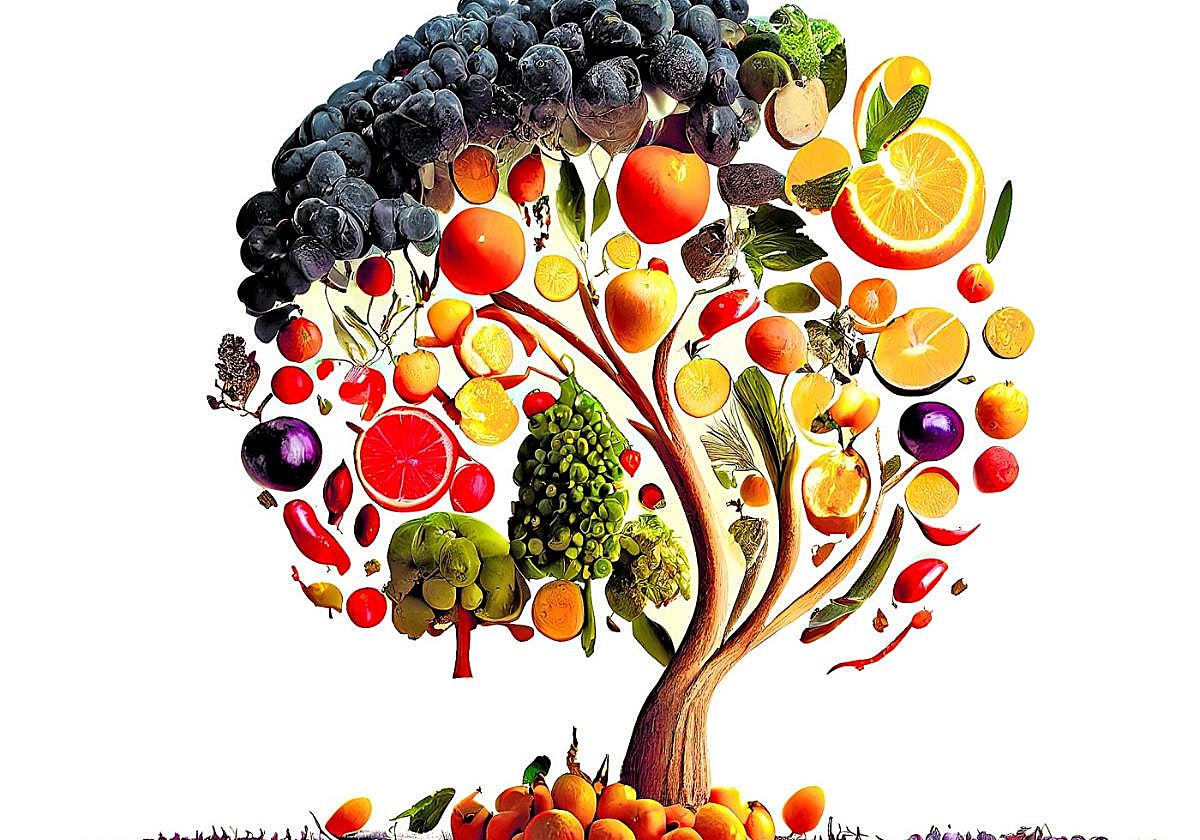Tricks of science that can help top up a vegetarian diet nicely
There are foods and supplements that can make up for any deficiencies
Marta Fernández Vallejo
Madrid
Friday, 30 August 2024, 13:29
So many beliefs and assumptions are associated with vegetarian and vegan diets, especially the claims that they cause deficiencies in some nutrients because the diets involve not consuming foods of animal origins. Researchers from the Nutrition and Obesity Group at the Department of Pharmacy and Food Sciences of UPV - a Basque university - have written a guide in which they break through some of the main myths and give tips on how to make up for nutritional deficiencies.
Protein
It is present in adequate quantities in many foods of plant origin such as legumes (pulses such as beans, lentils, chickpeas and broad beans) and, if we eat them with cereals (rice, oats, wheat, millet, sorghum, rye...), we obtain a complete or high-quality protein for our bodies. "This combination does not have to be in the same meal, you can eat legumes for lunch and cereals for dinner," explains Naroa Kajarabille, one of the researchers who prepared the guide. We can also combine them with nuts like almonds, walnuts, hazelnuts, pistachios and cashews. Soy is another option; it is a protein that provides all the necessary amino acids. Specifically for vegetarians, dairy products and eggs also offer good sources of protein. In any case, we must make sure that we consume twelve servings of protein per week.
Omega 3
We will obtain enough of this essential oil if we eat nuts, oilseeds (flax, chia, sesame), extra virgin olive oil or fruits such as avocado. For vegetarian diets that include fish, all types of blue fish are a good choice, as they are rich in omega-3. It is preferable to choose small fish (anchovy, sardine, mackerel, river salmon...) to avoid the presence of heavy metals or to opt for farmed fish.
Iron and calcium
Iron is found in both plant and animal-based foods, "although it is true that iron from animal sources is absorbed better." However, various studies have indicated that the vegetarian and vegan population does not have a greater iron deficiency. Nevertheless, to improve the absorption of iron from plant-based foods, it is recommended that they be eaten together with other foods, especially those containing vitamin C such as citrus fruits, kiwi, strawberries or red peppers. It is also advisable to separate their intake from the foods known to reduce iron absorption, for example, whole grains, tea and coffee.
If you do not consume dairy products or calcium-enriched products, it is important to eat foods rich in this mineral such as kale, broccoli, cauliflower, soybeans, all other beans and almonds.
Vitamin D
It helps maintain adequate levels of calcium and phosphorus in the human body and therefore is an essential vitamin for bone health. It is found in abundance in some foods of animal origin such as oily fish or eggs and it can also be added to certain products.
However, it needs sun exposure to release the benefits to the body. The recommended dose of sun exposure is about 10 or 15 minutes per day. If the weather isn't playing, then it is advisable to take a vitamin D supplement, but always with medical advice.
Ultraprocessed foods
"We must be especially careful with processed foods that are marketed as being of 'vegetable origin', but whose nutritional quality is poor due to the amount of salt, sugars or industrial fats," is the warning from Kajarabille. In addition to not providing essential nutrients such as vitamins, minerals and fatty acids, such products can prevent us from eating other healthy foods - for example, replacing fruit with a processed vegan dessert.
Take the example of vegan burgers, to be a source of protein they must contain tofu, hummus, peas or products such as falafel, tempeh (a soy product or seitan (made from wheat gluten). They do not have that adequate protein intake if they are made from starch-based products like potato or rice.
The problem is that "there is a huge supply, accessibility and advertising of processed vegan products - pastries, ice cream, milkshakes, hamburgers - and their consumption has increased. The protection factor offered by these diets to our health is increasingly being lost, specifically lowering the risk of developing cardiovascular diseases, diabetes or high cholesterol levels," says Kajarabille.
